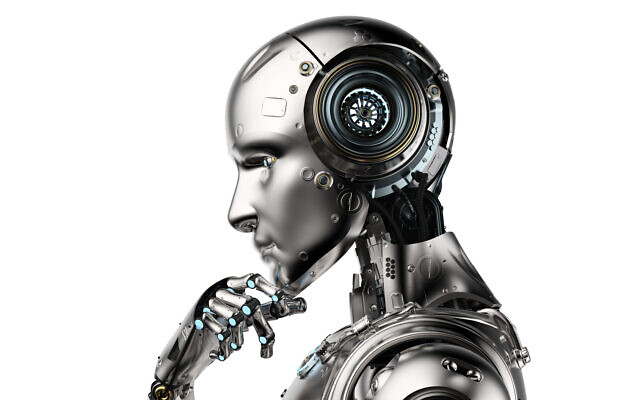
Illustrative image of a robot, Artificial Intelligence (AI); (PhonlamaiPhoto; iStock by Getty Images)
The recent rapid rise of accessible artificial intelligence tools has the potential to upend dozens of industries. Tools like Chat-GPT and Dall-E 2 by OpenAI can be used to create written content and visual outputs that in previous years required skilled workers who had years of training in art or writing.
“For myself as both an economist and an engineer, I’m absolutely shocked at the rate at which some of these generative content mechanisms are improving,” said J. Scott Marcus, a senior fellow at Bruegel, a Brussels-based think tank. “There’s also been a long-standing debate, what’s the impact likely to be on the workforce?”
A recent report by Goldman Sachs laid out some stark possibilities when it comes to AI and the economy. The report estimates two-thirds of jobs in the U.S. and Europe, and around 300 million positions worldwide could be exposed to automation from new AI advances. The report also notes that one-fourth o
“The interaction between humans and AI will become more and more prevalent as we move forward,” said Georgios Petropoulos, a researcher at the Massachusetts Institute of Technology Initiative on the Digital Economy.
The latest Future of Jobs report 2023 by the World Economic Forum has suggested that almost a quarter of jobs which is about 23 percent are expected to change in the next five years through growth of 10.2 percent and decline of 12.3 percent.
The report noted that advancing technology adoption and increasing digitization will cause significant labour market churn, with an overall net positive in job creation, rapid advancement of artificial intelligence, AI, big data, robotics among others.
The 803 companies surveyed in the report estimated that employers anticipate 69 million new jobs to be created and 83 million eliminated among the 673 million jobs corresponding to the dataset, a net decrease of 14 million jobs, or 2 percent of current employment.
It says: “While technology continues to pose both challenges and opportunities to labour markets, employers expect most technologies to contribute positively to job creation.
The fastest growing roles are being driven by technology and digitalization. Big data ranks at the top among technologies seen to create jobs, with 65 percent of survey respondents expecting job growth in related roles.
“The employment of data analysts and scientists, big data specialists, AI machine learning specialists and cybersecurity professionals is expected to grow on average by 30 percent by 2027.
“Training workers to utilize AI and big data will be prioritized by 42 percent of surveyed companies in the next five years, ranking behind analytical thinking which is 48 percent and creative thinking, 43 percent in importance.









